Filter by

Words without meaning
"A Bradford book."According to the received view of linguistic communication, the primary function of language is to enable speakers to reveal the propositional contents of their thoughts to hearers. Speakers are able to do this because they share with their hearers an understanding of the meanings of words. Christopher Gauker rejects this conception of language, arguing that it rests on an unt…
- Edition
- -
- ISBN/ISSN
- 9780262273596
- Collation
- 1 online resource (xi, 299 pages).
- Series Title
- -
- Call Number
- -

Where biology meets psychology :philosophical essays
"A Bradford Book."A great deal of interest and excitement surround the interface between the philosophy of biology and the philosophy of psychology, yet the area is neither well defined nor well represented in mainstream philosophical publications. This book is perhaps the first to open a dialogue between the two disciplines. Its aim is to broaden the traditional subject matter of the philosoph…
- Edition
- -
- ISBN/ISSN
- 9780262274944
- Collation
- 1 online resource (xii, 391 pages) :illustrations
- Series Title
- -
- Call Number
- -

Wartime Schooling and Education Policy in the Second World War Catholic Educ…
This book deals with the development of private secondary schooling during the Second World War in Belgium. It focuses on how the German occupier used education to gain acceptance of the regime, and discusses the attitudes of Belgian education authorities, schools, teachers and pupils towards the German occupation. Suggesting that the occupation forced Belgian education authorities, such as the…
- Edition
- -
- ISBN/ISSN
- 978-1-137-52011-1
- Collation
- -
- Series Title
- -
- Call Number
- -

Vladimir Solov’ëv's Justification of the Moral Good Moral Philosophy
This new English translation of Solov’ëv’s principal ethical treatise, written in his later years, presents Solov’ëv’s mature views on a host of topics ranging from a critique of individualistic ethical systems to the death penalty, the meaning of war, animal rights, and environmentalism. Written for the educated public rather than for a narrow circle of specialists, Solov’ëv’s w…
- Edition
- -
- ISBN/ISSN
- 978-3-319-12775-0
- Collation
- -
- Series Title
- -
- Call Number
- -
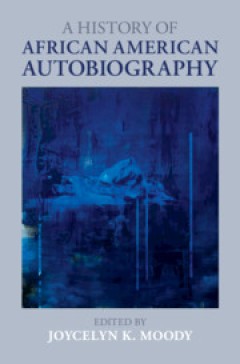
A History of African American Autobiography
This History explores innovations in African American autobiography since its inception, examining the literary and cultural history of Black self-representation amid life writing studies. By analyzing the different forms of autobiography, including pictorial and personal essays, editorials, oral histories, testimonials, diaries, personal and open letters, and even poetry performance media of a…
- Edition
- -
- ISBN/ISSN
- 9781108890946
- Collation
- -
- Series Title
- -
- Call Number
- -
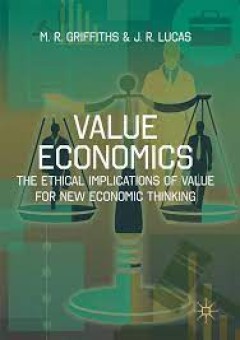
Value Economics the Ethical Implications of Value for New Economic Thinking
The last financial crisis revealed a gap between business practice and ethics. In Value Economics, Griffiths and Lucas examine some of the reasons for this ethical gap and discuss the resulting loss of confidence in the financial system. One of the reasons has been hazy or inadequate thinking about how we value economic enterprises. With the close link between the creation of value and business…
- Edition
- -
- ISBN/ISSN
- 978-1-137-54187-1
- Collation
- -
- Series Title
- -
- Call Number
- -
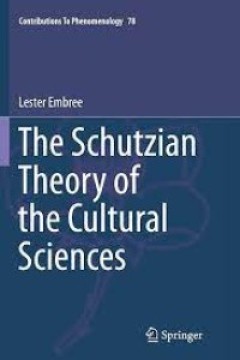
The Schutzian Theory of the Cultural Sciences
This work is devoted to developing as well as expounding the theory of the cultural sciences of the philosopher Alfred Schutz (1899-1959). Drawing on all of Schutz’s seven volumes in English, the book shows how his philosophical theory consists of the reflective clarifications of the disciplinary definitions, basic concepts, and distinctive methods of particular cultural sciences as well as t…
- Edition
- -
- ISBN/ISSN
- 978-3-319-13653-0
- Collation
- -
- Series Title
- -
- Call Number
- -

A History of Aesthetic
After more than ten years teaching ancient Greek history and philosophy at University College, Oxford, the British philosopher and political theorist Bernard Bosanquet (1848–1923) resigned from his post to spend more time writing. He was particularly interested in contemporary social theory, but he was also concerned with philosophical questions about art and aesthetics. In this area, Bosanqu…
- Edition
- -
- ISBN/ISSN
- 9781139136488
- Collation
- -
- Series Title
- Cambridge Library Collection - Philosophy
- Call Number
- -
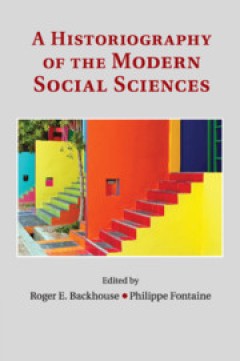
A Historiography of the Modern Social Sciences
A Historiography of the Modern Social Sciences includes essays on the ways in which the histories of psychology, anthropology, sociology, economics, history and political science have been written since the Second World War. Bringing together chapters written by the leading historians of each discipline, the book establishes significant parallels and contrasts and makes the case for a comparati…
- Edition
- -
- ISBN/ISSN
- -
- Collation
- -
- Series Title
- -
- Call Number
- -
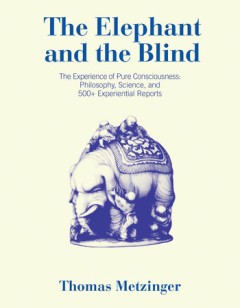
The Elephant and the Blind: The Experience of Pure Consciousness: Philosophy,…
An engaging and insightful journey into human consciousness. What if our goal had not been to land on Mars, but in pure consciousness? The experience of pure consciousness—what does it look like? What is the essence of human consciousness? In The Elephant and the Blind, influential philosopher Thomas Metzinger, one of the world's leading researchers on consciousness, brings together more t…
- Edition
- Ed. 1
- ISBN/ISSN
- 9780262377287
- Collation
- -
- Series Title
- -
- Call Number
- 190.08 MET e
 Computer Science, Information & General Works
Computer Science, Information & General Works  Philosophy & Psychology
Philosophy & Psychology  Religion
Religion  Social Sciences
Social Sciences  Language
Language  Pure Science
Pure Science  Applied Sciences
Applied Sciences  Art & Recreation
Art & Recreation  Literature
Literature  History & Geography
History & Geography